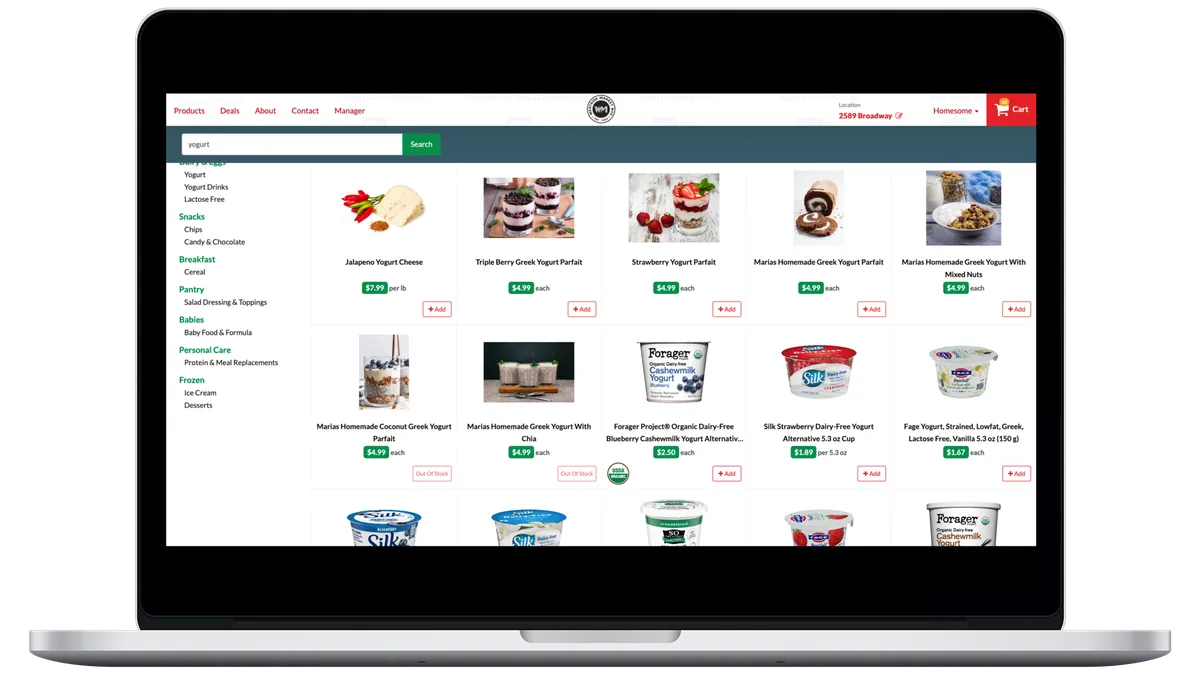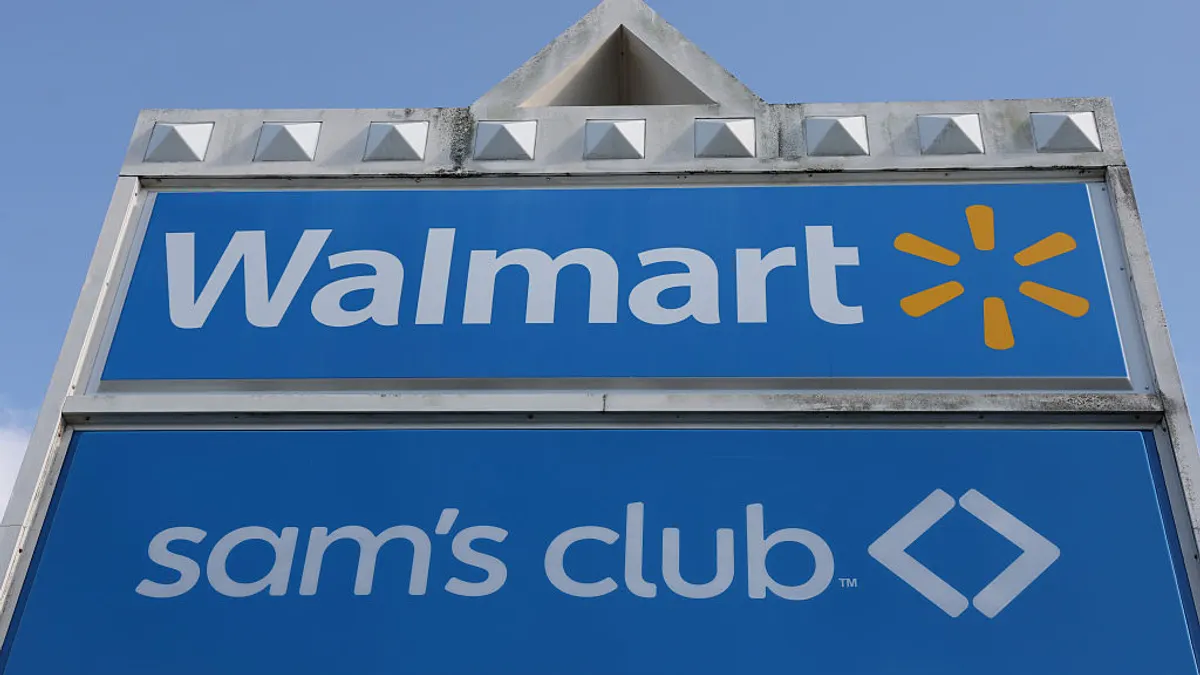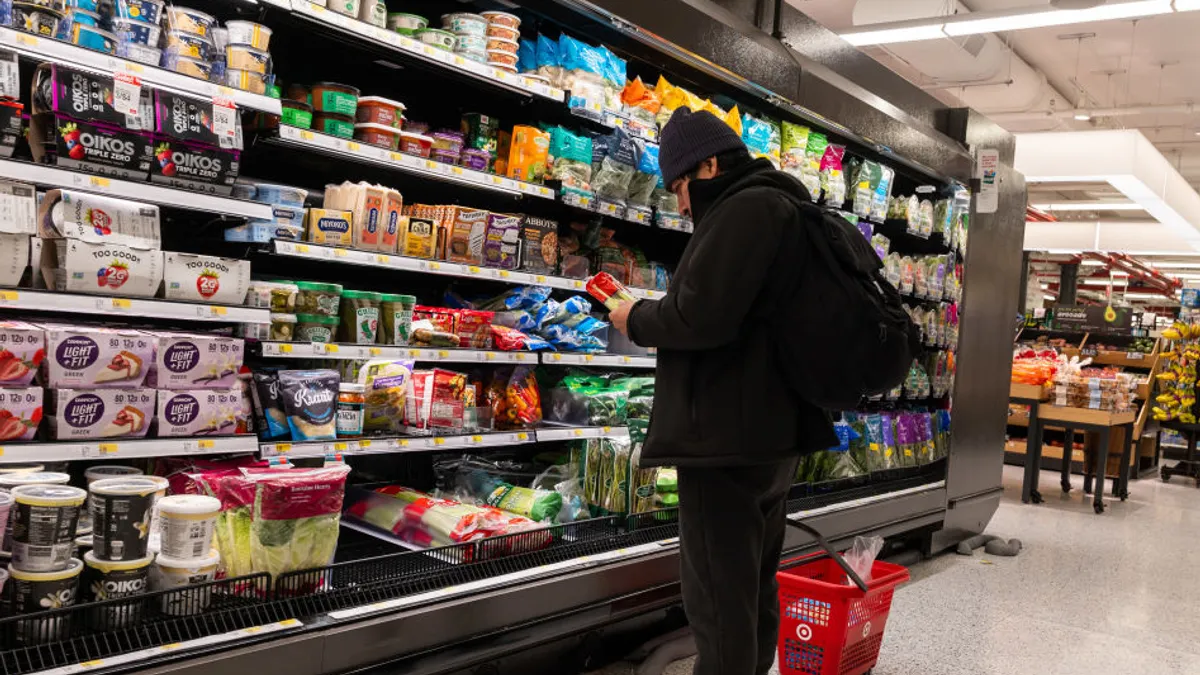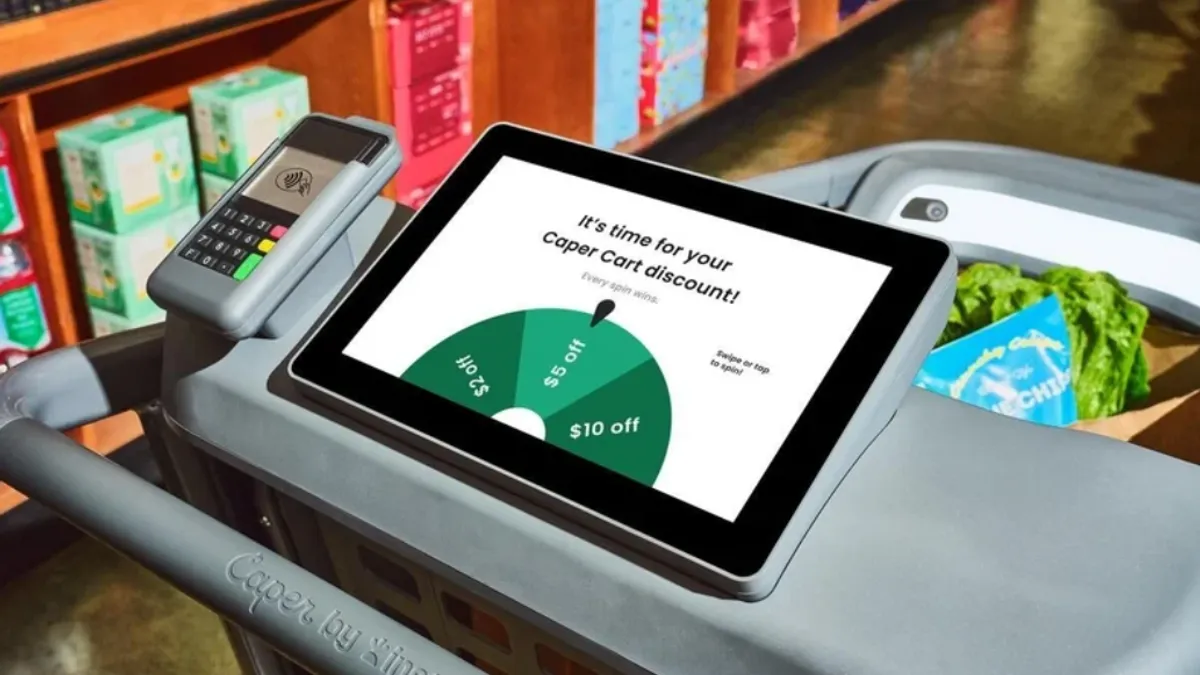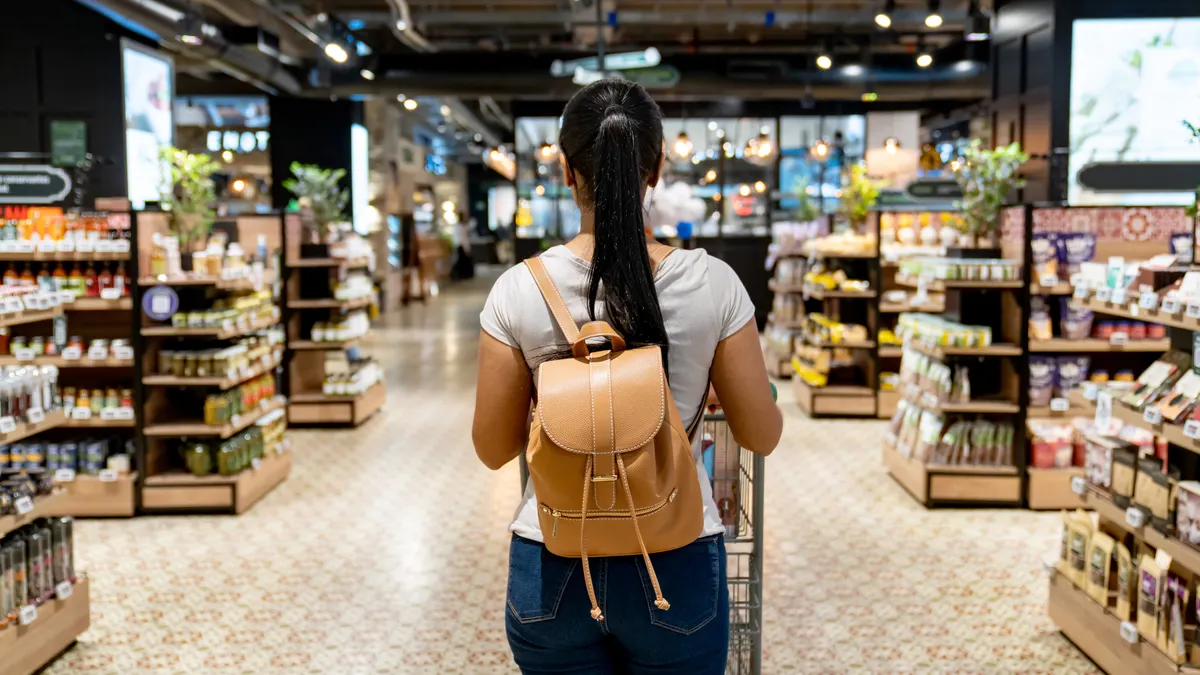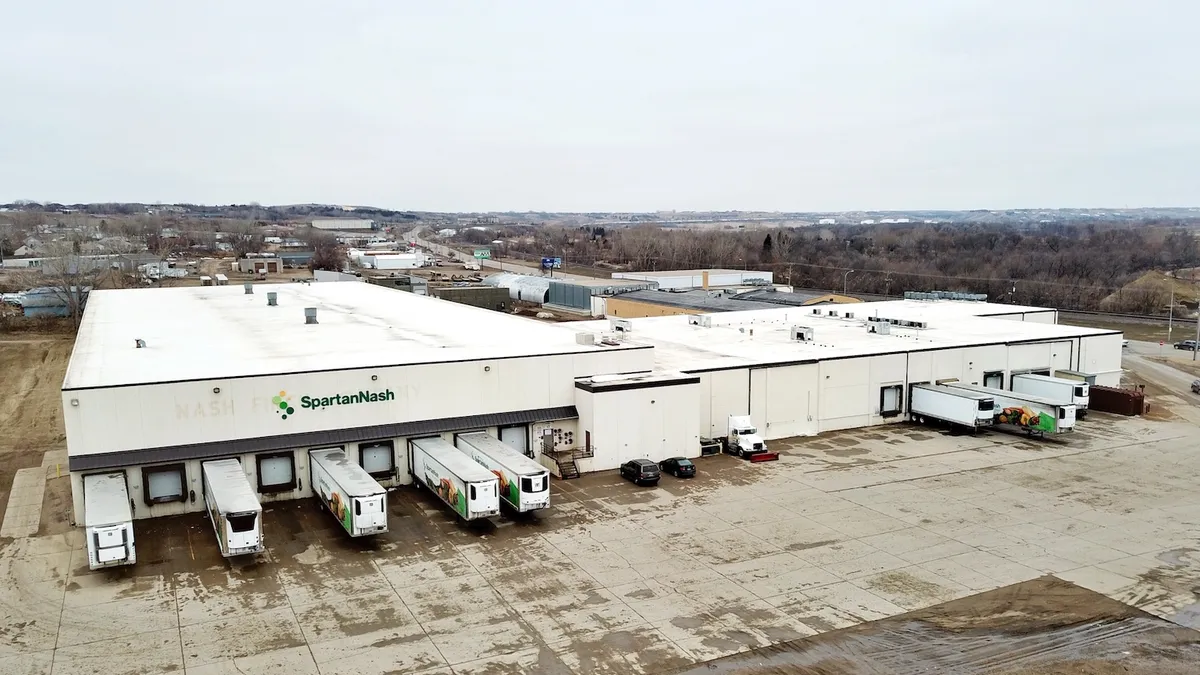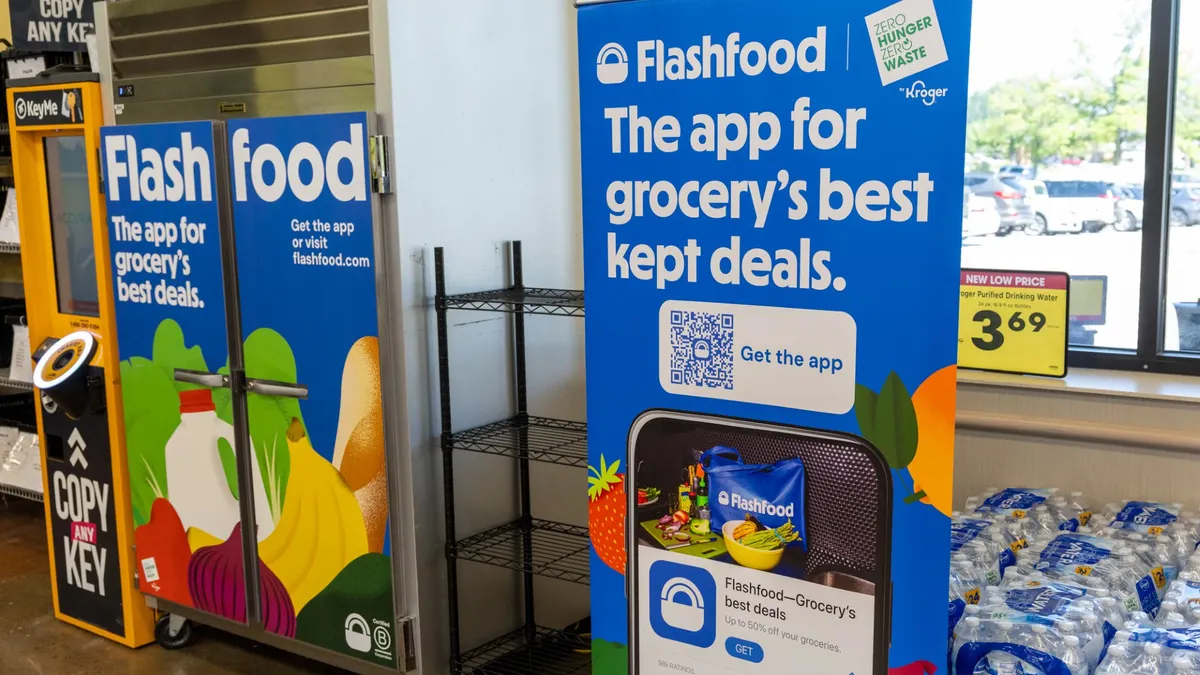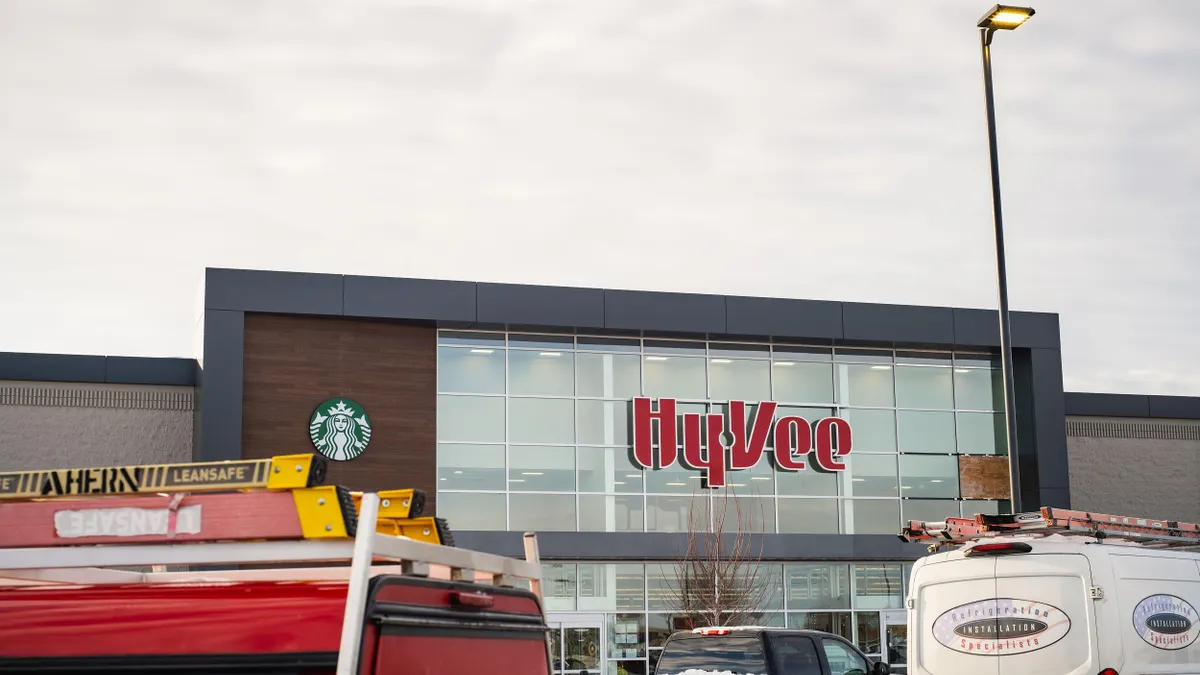With seven popular food stores on streets across Manhattan, Westside Market has built an urban grocery brand familiar to shoppers across broad areas of New York City. But like many retailers in the nation's largest metropolitan area, the family owned chain is heavily focused on customizing each of its locations to closely reflect the neighborhood it serves.
That strong emphasis on tailoring its business to the desires of local shoppers posed a challenge to Westside Market when the grocer sought to build an e-commerce presence. When the sudden arrival of the pandemic last year turned the project into an immediate priority, the seemingly conflicting goals of scaling digitally and remaining locally relevant stood out even more sharply, said George Zoitas, the company's CEO.
"Our customers know that certain areas or certain displays are features [of Westside stores], and we're trying to make sure that translates online," Zoitas said. "So knowing that that's what we want to accomplish, we started to source different avenues to creating our own ecommerce in the most efficient, cost efficient way … that would allow us to give that unique difference as far as how we operate a supermarket."
Zoitas selected Homesome, a San Jose, California-based startup focused on building e-commerce platforms for independent food retailers to supply the technology that sits at the heart of Westside Market's online operations.
The tech company is looking to stand out from other e-commerce providers by providing a highly customizable white-label platform that can be up and running in two to three weeks, according to Rahul Chabukswar, Homesome's founder and CEO.
"What we hear in terms of the unique requirements of independent grocers is how much your system is flexible and configurable to my needs and to my value prop."

Rahul Chabukswar
Founder and CEO, Homesome
Chabukswar, who worked as an engineering manager at Microsoft before starting Homesome, said he detected a need among independent grocers for an e-commerce platform that would let them maintain an intricate level of control over their websites but still be able to use a plug-and-play system to manage their presence online.
"What we hear in terms of the unique requirements of independent grocers is how much your system is flexible and configurable to my needs and to my value prop," Chabukswar said.
Homesome, which raised $6.7 million in Series A funding in September, counts a number of retailers in addition to Westside among its customers. The company's clients include Chicago's Cermak Fresh Market, India Cash & Carry of the San Francisco Bay Area and Super India, a grocer in San Jose that became the first user of Homesome's e-commerce platform in 2018.
The company positions itself as a Shopify for grocers, referencing the popular online hosting company that has a reputation as a merchant-friendly platform. Homesome competes with a host of companies to supply white-label e-commerce services to independent grocers, including Local Express, Mercato, My Cloud Grocer and Farmstead, which recently struck a deal to allow users of its Grocery OS platform to offer delivery through DoorDash.
Moving away from Instacart
Homesome is one of a growing number of tech firms pitching themselves as an alternative to Instacart, the popular e-commerce services company that experts say grocers have become overly reliant upon.
According to Zoitas, Westside Market signed on with Homesome as a way to move away from Instacart and Amazon Prime Now, two grocery e-commerce providers that the grocer had earlier turned to as he explored online options.
Zoitas said there are distinct pluses to working with Instacart, because it offers access to a large number of customers who head online to buy groceries. But the tradeoff is that he loses the ability to provide the personal level of service that Westside has long staked its reputation on.
Another issue is that by using Instacart's online marketplace, Westside runs the risk of losing customers to competitors, Zoitas said. "A loss leader from somebody can just lure my customer to them," he said.
Westside has logged a 15-fold increase in e-commerce revenue during the year since it launched its own e-commerce site using Homesome's platform, according to Zoitas.
In addition to adding e-commerce capabilities over the past year, Westside also recently embraced scan-and-go technology as a way to speed up the checkout process in its stores.
A different website for every store
Zoitas said a key advantage of Homesome's platform is that it permits individual stores to customize the assortment of goods they offer online. "Every general manager has his own way and creates his own product mix, because ... [Westside is] your neighborhood store. So my product mixes between websites are completely different from one another," he said.
Beyond offering product assortments that vary by store, Westside also strives to use data gleaned from Homesite's software about what people want to buy to determine the order in which items appear online, according to Zoitas.
In addition, Westside works to avoid having too many of a certain kind of product appear on its website in order to help customers find what they are looking for quickly, just as they might if they were perusing aisles in a Westside location they frequently visit in person.
"When I'm scrolling down and I see 28 different types of [milk] and then I see another 28 of lowfat and then I see another 28 of one percent, it's overwhelming," Zoitas said.
Zoitas said he was also drawn to the ability to let customers select their own shopper — a Westside Market employee — when placing an order as opposed to having products picked by a randomly chosen associate. "Our shoppers are kind of like personal butlers for your supermarket needs. That's one thing we try to do to differentiate ourselves from other e-commerce" sites, he said.
Chabukswar said that in addition to enabling grocers to build and manage online ordering systems on a store-by-store basis, Homesome provides insights into sales patterns that can also give stores an edge.
For now, Homesome's platform can use its machine learning capabilities to predict whether a given item is available in the store based on purchasing patterns, but doesn't have the ability to determine actual stock levels. "Our system can predict with 95% accuracy that you have Diet Coke to unpack or you don't have Diet Coke to unpack at this point," Chabukswar said.
Later this year, Homesome intends to upgrade its technology to help retailers make decisions about how much of a given product to procure from a supplier based on sales trends over time, he said.
Homesome also hopes to help grocers get to know their online customers' buying habits in order to speed the ordering process, Chabukswar said. "My goal is a system where you don't have to even search," he said. "With a few clicks, you'll be able to say, 'My grocery order is ready. Place order.'"
Correction: A previous version of this story misstated where India Cash & Carry is located. The chain operates in the San Francisco Bay Area.



